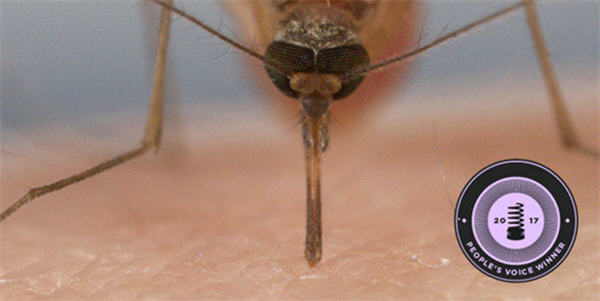FOR IMMEDIATE RELEASE
Contact: Sevda Eris, 415-553-2835, seris@kqed.org
April 28, 2017 San Francisco, CA — KQED’s award-winning YouTube science series Deep Look won a Webby People's Voice Award in the Science and Education Film and Video category with its three-minute video 'How Mosquitoes Use Six Needles to Suck Your Blood.' Deep Look explores big scientific mysteries by going incredibly small and is shot in ultra-HD.
Dubbed “the Internet’s highest honor” by The New York Times, the Webbys are seen as a standard of excellence on the Web. Deep Look’s mosquito video was competing against short videos from renowned media outlets such as BBC Earth and Time Inc. This is KQED’s first Webby Award win.
“We were honored to be among such esteemed nominees in this category,” said Craig Rosa, Deep Look’s series producer. “And it’s a privilege to be working with such a talented team of colleagues dedicated to sharing the wonder of science with millions of viewers around the globe. This award will help us reach even a wider audience, and we want to express our gratitude to all the fans who made it happen.”
With over 50 videos to date, this episode is Deep Look’s most popular, with more than 4.5 million views. “Part of its popularity comes from humans having such an intimate relationship with mosquitoes. They take our blood — what could be more personal than that? ” said Gabriela Quirós, the episode's producer and the coordinating producer for the series. “The episode is also very surprising. I grew up in Costa Rica, surrounded by mosquitoes and reported for several years on mosquito-borne diseases, and yet, I had never heard that they had these amazing mouthparts — until recently.”

